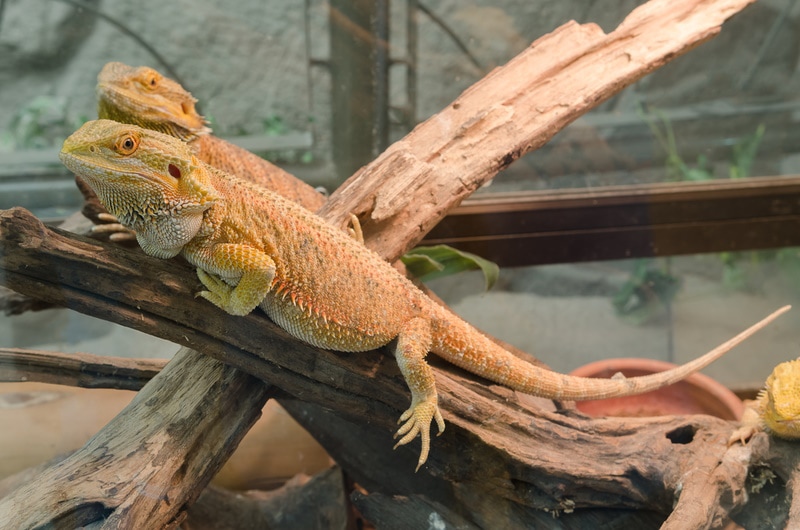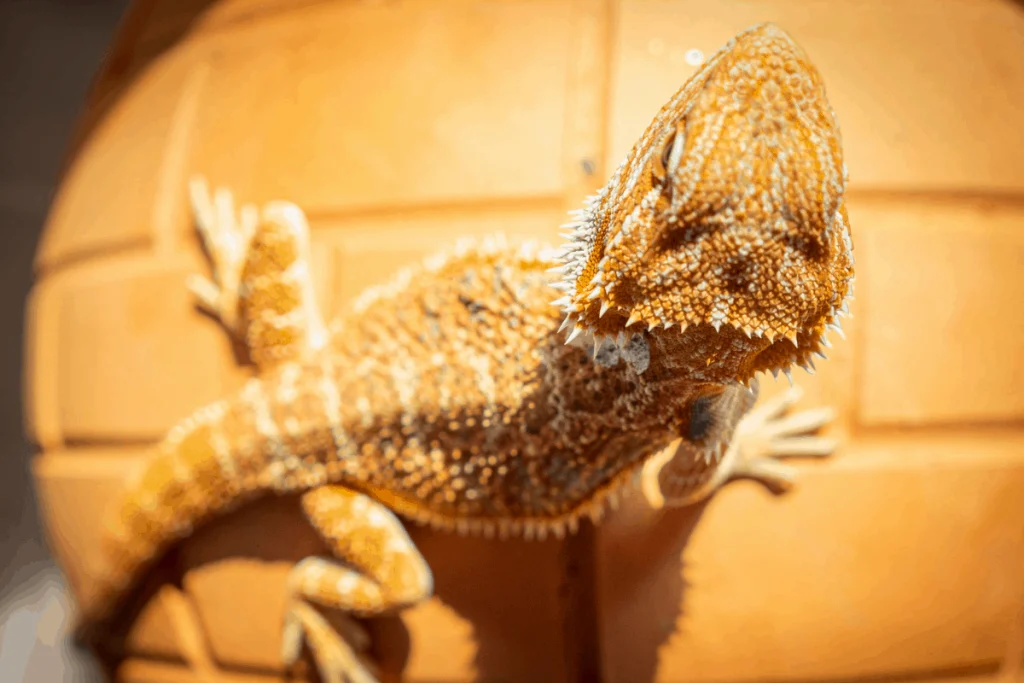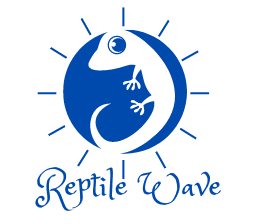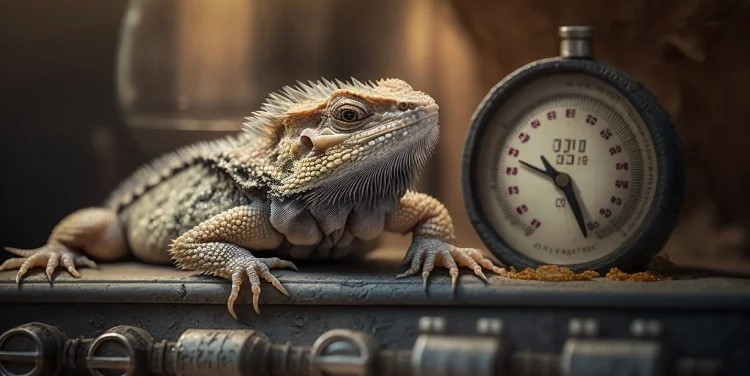If you study Bearded Dragon Humidity 70 At night, your bearded dragon is vulnerable to a variety of health complications. The excessive humidity levels have a direct impact on their respiratory health.
In addition, if you maintain a humidity level of 70% overnight it might potentially promote fungal or bacterial infections. This is why bearded dragon humidity rises at night.
Why is the Bearded Dragon’s humidity at 70 at night? The bearded dragon’s enclosure became more humid when the temperature dropped at night. The night air cannot retain as much moisture as it does during the day. This is why you expect relative humidity to rise to 70%.
How to Maintain Ideal Humidity Levels for Bearded Dragons?

It’s important to keep the air not too wet for bearded dragons because they come from dry places and like it that way for their health and happiness.
The Natural Habitat in Arid Regions of Australia
Bearded dragons are from dry places in Australia. They’re used to living where it’s not too humid. In their home, it’s mostly deserts and places that aren’t very wet. It’s vital to know this so we can make sure pet bearded dragons have a home that’s a lot like where they come from.
The Preference for Lower Humidity Levels
Bearded dragons like it when it’s not too humid, which makes sense because they’re used to dry places. When we keep them as pets, it’s vital to make sure the air isn’t too wet.
Potential Issues Associated with High Humidity
Too much wet air, especially at night, can be bad for bearded dragons. It might make them have trouble breathing because there’s too much moisture in the air. Also, it can cause skin problems like infections. To keep them healthy, it’s important to make sure the air is not too humid, like in their wild home.
Basking and Cool Areas
| Areas | Temperature Range | Characteristics |
| Basking Area | 95-110°F (35-43°C) | Drier, helps beardie regulate body temperature effectively |
| Cooler Area | 75-85°F (24-29°C) | Provides a cooler environment in the enclosure |
What Are the Recommended Humidity Levels for Bearded Dragons?

Being careful about how humid it gets at night is part of taking good care of pet bearded dragons and helps keep them happy and healthy.
Specify the Recommended Humidity Range During the Day
To keep your dragon happy and healthy, make sure the air isn’t too wet during the day and aim for humidity between 20% and 40%. This range is like the dry place in Australia where they come from. The dragons are healthier when the air isn’t very damp because it reflects their natural habitat. It’s good for their body and helps them breathe easily.
The proper humidity levels ensure that your dragon may breathe normally, avoiding any respiratory issues. This humidity range also keeps your dragon’s skin healthy and reduces the possibility of any skin problems. Keep it within this range for a happy, healthy pet.
Importance of Even Lower Humidity Levels at Night
When your dragon sleeps at night, keep the air not too wet – aim for humidity below 40%, and some experts say it’s even better at 20-30%.
Dragons like it less humid at night, just like in the wild. This helps them act more naturally and stay healthy. Dry air at night makes your dragon feel better and happier. It’s an important part of taking care of them.
Making sure the air is right at night is a big part of keeping your dragon comfy and healthy. It helps them be happy and do well overall.
How to Manage Bearded Dragon Humidity Effectively?
It’s necessary to keep the humidity just right for your bearded dragon’s health. These dragons like it dry because they’re from dry places. So, make sure their home isn’t too humid.
Practical Measures for Maintaining Optimal Humidity
- Let the Air Move: Make sure the air can flow around their home. This stops too much dampness and keeps things dry and comfy.
- Pick the Right Bedding: Choose stuff like paper towels, reptile carpets, or tiles. These don’t keep too much water, which is good for your dragon’s home. It’s like the dry places they come from.
- Not Too Much Water: Only give a small water bowl. They get most of their water from what they eat, so too much water in their home can make things too wet.
Use of a Hygrometer for Monitoring Humidity Levels
To make sure the air is just right for your bearded dragon, use a tool called a hygrometer. This helps you check if there’s too much or too little humidity.
Also, keep an eye on it and change things if needed to keep your dragon comfy. It’s like a humidity checker to help you make good choices for their home.
Potential Use of a Dehumidifier if Room Humidity is an Issue
In situations where the humidity in the room is consistently high, the use of a dehumidifier becomes a valuable tool. The dehumidifier in the bearded dragon’s home helps regulate the air and prevents the room from becoming too damp.
This measure is especially relevant in climates or seasons where high humidity is challenging to control through enclosure-specific adjustments alone. For the sake of the bearded dragon’s wellbeing, integrating a dehumidifier promotes a more stable and controlled environment.
FAQs
Here are some common queries to provide you with quick and informative answers.
Yes, bearded dragons can get cold at night, and maintaining appropriate nighttime temperatures is essential for their well-being.
For nighttime heat sources, ceramic heat emitters are a wonderful option since they generate no light but yet give warmth, so your dragon can sleep well.
Yes, bearded dragons may sleep more when it’s cold as they become less active in cooler temperatures.
Yes, a bearded dragon can generally go without a heat lamp for one night.
Yes, bearded dragons can sleep without light.
Final Words
It’s important to make sure your bearded dragon is comfy with the right humidity. Keep it around 20-40% during the day and even less at night, like 20-30%, as experts suggest. This is like copying their natural home, keeping them feeling good. Nighttime humidity matters because it helps them act like they do in the wild and stay cozy.
So, paying attention to all this humidity stuff is like giving your dragon the best chance to be happy and healthy. If you ever have questions or if your dragon seems not right, it’s always good to check with a vet who knows about reptiles. They can help your special dragon friend!

